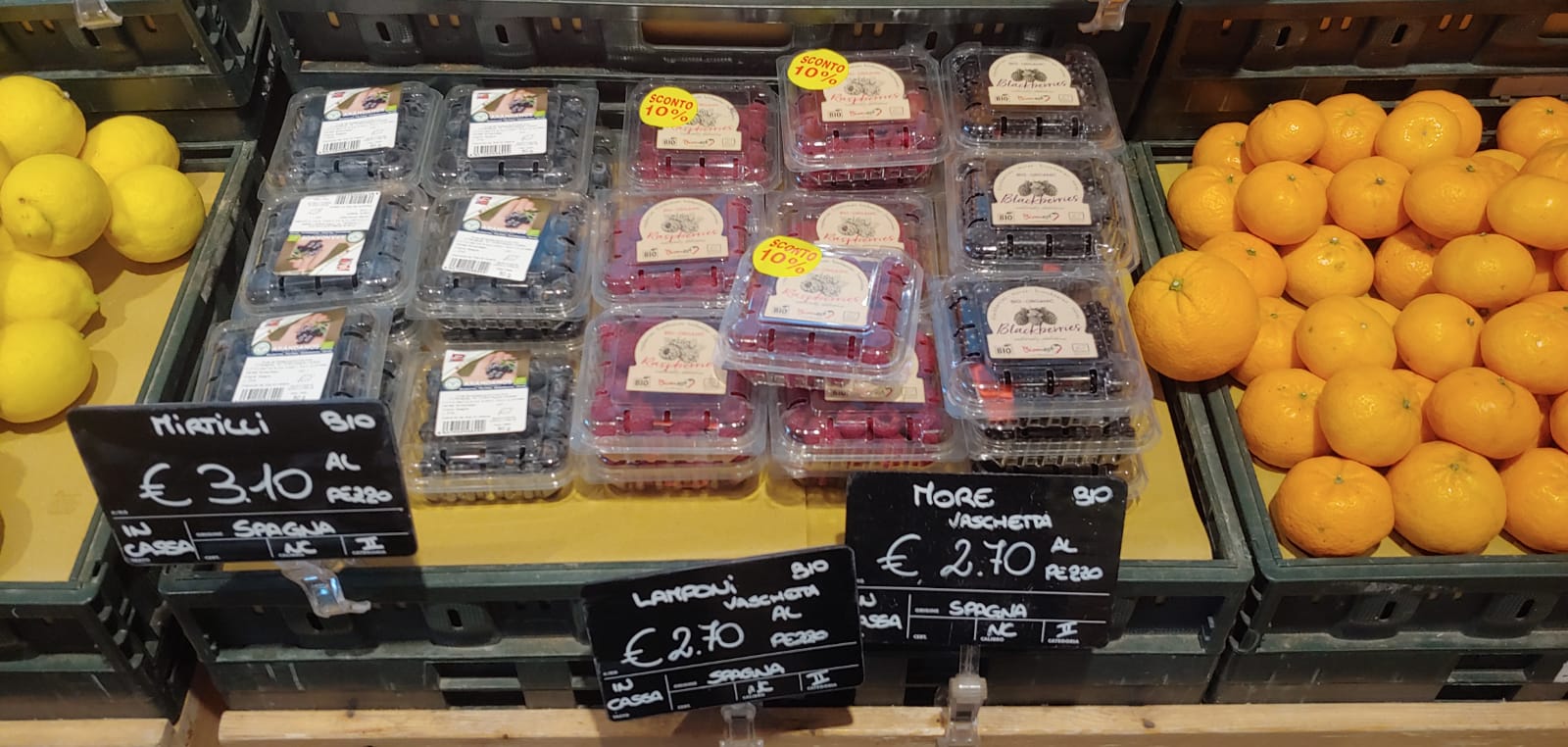Growth in acreage and production, so much so that it is the second largest in Europe, increased domestic demand and exports, but also critical issues of rising costs and competitiveness from other countries. This is the picture of blueberry in Poland taken by Stanislaw Pluta of the National Horticultural Research Institute (InHort) in Skierniewice. The Polish lecturer will take part in Macfrut at the International Blueberry Days (Rimini Expo Centre May 3-5), the world event together with top technical-scientific experts, global players and opinion leaders from blueberry.
POLAND: AREAS AND PRODUCTION
"In 2022 the total area of commercial plantations of blueberry (Vaccinium corymbosum L.) was 11,900 hectares, an increase of 8.4% compared to 2021," explains Stanislaw Pluta. "In 2022 the total production was estimated at 64,000 tons: 60,000 tons of conventional fresh fruit production, including 2,000 tons of organic production, and 4,000 tons of fruit for processing and freezing. With this production of blueberries, Poland currently ranks second in Europe, after Spain, and eighth worldwide. The production of blueberries under cover (greenhouse and sheds) has developed steadily, but is still relatively small."

Pluta draws a general picture of the type of Polish farms. " blueberry Highbush (northern type only) has been grown commercially in Poland for more than 45 years; but in particular, the last decade has been unprecedented in terms of increase in area under cultivation and production. Polish producers of blueberries are highly fragmented, with farms smaller than 5 hectares making up about two-thirds of all farms.
However, the largest farms (over 50 ha) account for about 30 percent of the total cultivated area. The largest plantation is over 600 ha. Currently more than 100 Polish growers/producers of blueberries belong to the Blueberry Grower's Association (SPBA). Production of blueberries is mainly concentrated in 3 regions (Mazovia, Lodzkie and Lubelskie) in central and southeastern Poland, accounting for over 55% of the total cultivated area and over 64% of this fruit production."
The lecturer at the National Horticultural Research Institute in Skierniewice then goes into the merits of productive varieties. "The main cultivars of blueberry are still 'Duke' and 'Bluecrop,' well known and cultivated in other European countries, also 'Spartan,' 'Patriot,' 'Nelson,' 'Brigitta,' 'Chandler,' 'Bluegold,' 'Toro' and 'Elliot,' as well as newer ones: 'Draper,' Liberty' and 'Aurora.' As for new plantings, new cultivars such as 'Last Call,' 'Megas Blue,' 'Valor,' 'Cargo' and 'Calypso' are gaining popularity. Many experimental plantings of these new cultivars have been put in place to test their adaptation and suitability to the Polish climate, including winter hardiness. The severe (freezing) and snowy winter of 2020/2021 and the mild winters of 2021/2022 and 2022/2023 have already allowed growers to obtain some valuable information, but a full evaluation and conclusions will take more time."
There is no shortage of critical issues for production in Poland. "Between late 2021 and early 2022 growers faced an unprecedented increase in the cost of many production materials, including but not limited to fertilizer, plant protection products, and packaging. This is then compounded by the impact of the war in Ukraine on labor availability for Polish growers."
Each Pole consumes 1 kg of blueberries. "Domestic demand for blueberries has increased significantly over the past 3-4 years. This can be attributed to the promotional campaign Time for Polish Superfruit, conducted jointly by growers from various berries. At the beginning of the pandemic in spring 2020, we observed an increase in consumption of imported blueberries , but in 2021 consumption patterns returned to normal. In 2021-2022, annual per capita consumption exceeded 1 kg of blueberries".
Outlook for the future. "The main challenges facing Polish growers see rising costs, the need to increase fruit quality, and consolidation of production. If Poland wants to remain competitive in the global market for blueberries, it is necessary to improve fruit quality parameters such as firmness, crispness and shelf life. This can be achieved mainly through the introduction of new cultivars, but also modern production technologies."
Stanislaw Pluta will take part with a talk at the International Blueberry Symposium on the first day of Macfrut as part of the International Blueberry Days, an event organized by Macfrut under the coordination of Professor Bruno Mezzetti of Università Politecnica delle Marche together with Thomas Drahorad of NCX Drahorad.
Macfrut, international fruit and vegetable fair will be held at Rimini Expo Centre from May 3 to 5, 2023.







